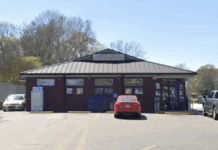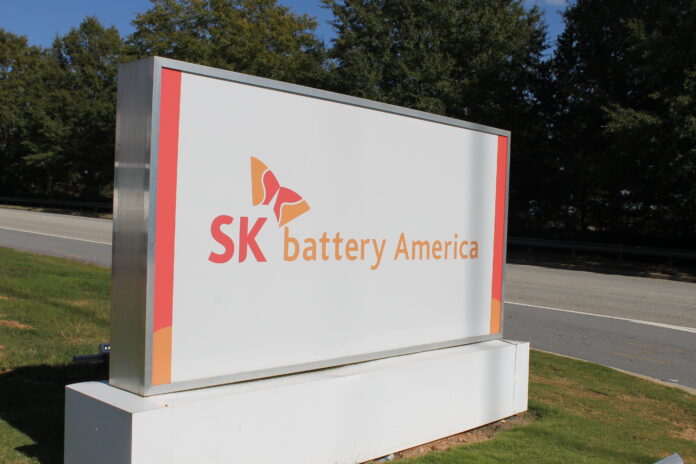
SK Battery, known as one of the largest employers in Jackson and Banks counties, has settled a multimillion-dollar lawsuit after it was found responsible for a fire that destroyed a small, family-owned recycling business in Commerce.
In late September, the South Korean-owned electric vehicle battery manufacturer paid $31 million to Commerce-based recycling center Metro Site Inc. as the case was set to go before a Jackson County jury.
Since the settlement, SK Battery spokesperson Joe Guy Collier has disputed an array of allegations made by Metro Site’s attorneys.
“SK Battery America has acted responsibly, taking action more than a year ago by adding an extra layer of oversight to the disposal of unused material at the site,” Collier said in an email. “The agreement between SK Battery America and Metro Site provides a generous settlement for Metro Site to rebuild and relaunch its business. We are not sure why Metro Site and its attorneys continue to argue the case when the parties agreed a month ago to settle it.”
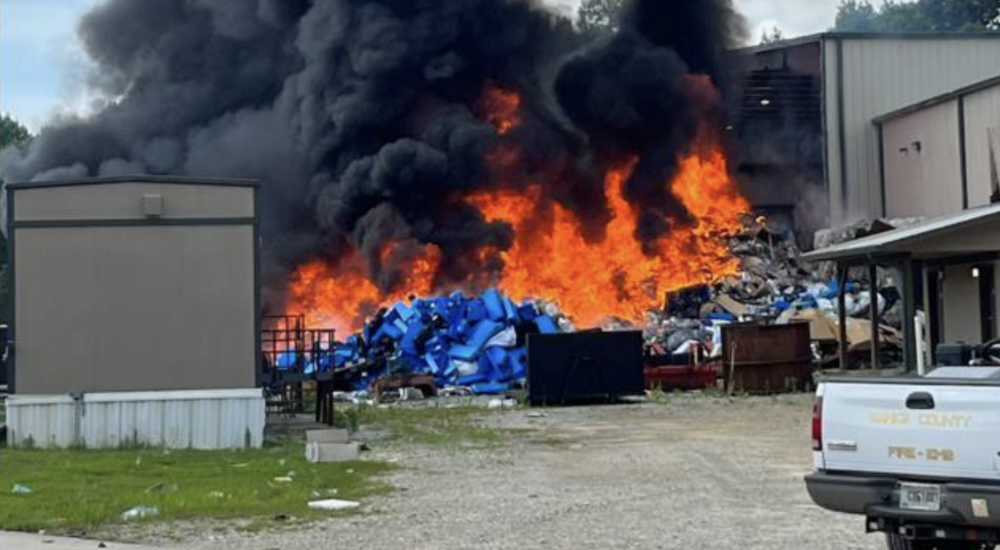
Lawsuit’s allegations
In the lawsuit, North Georgia attorneys from Stockton & Stockton and McDonald & Cody, representing Metro Site Inc., say SK Battery America “disguised” more than 600 explosive, hazardous lithium-ion batteries as “regular recyclable material” inside a roll-off dumpster, which was then shipped to Metro Site’s non-hazardous recycling facility in Commerce.
When the dumpster was delivered, according to the lawsuit, a catastrophic fire destroyed the small Banks County recycling facility.

Metro’s attorneys maintain the “illegal shipment” of batteries spurred a chemical reaction known as “thermal runaway” – which led to an intense, uncontrollable fire at the facility. They also claim in court documents that SK “destroyed critical evidence” the company had been “on notice” to preserve.
According to the lawsuit, Banks County Fire Chief Steve Nichols reported that the fire burned for almost a week before the flames were extinguished, emitting “toxic fumes” for miles and “depleting Commerce’s water reserves to unsafe levels.”
Bo Hatchett, a state senator and attorney with McDonald & Cody, said Banks County used more than 3 million gallons of water over five days to extinguish the blaze.
Collier told Now Habersham SK Battery America did not intentionally send the battery cells to Metro Site, and there was no finding by the court that SK Battery America intentionally destroyed any evidence.
Collier said the company remains committed to its partnership with the community, maintaining compliance with aspects of safety and a positive impact on the area.
“SK Battery America has stringent procedures in place to comply with guidelines on the shipping and disposal of production-related material,” he said. “More than a year ago, we added an extra layer of oversight to further strengthen these procedures before any waste material leaves our site. We believe it is in the best interest of both parties to move past this dispute.”

Evidence tampering
The plaintiff’s attorneys claim this was allegedly the second time the company tampered with evidence, which Collier called untrue.
In 2021, according to the lawsuit, the South Korean company paid a settlement of over $1 billion after a judge at the International Trade Court determined that SK Battery had “systematically destroyed evidence” in a case involving a patent dispute with a competing battery manufacturer, LG Energy Solution.
“SK Battery America did not destroy evidence in a previous case,” Collier said in response to the allegation. “The previous case referenced by Metro Site (attorneys) was filed in 2019 before SK Battery America started manufacturing operations.”
Attorneys for the plaintiff called the recent settlement a “David vs. Goliath” case before they went on to question millions of dollars in tax breaks they say SK Battery received to build its Commerce facility. Metro’s attorneys also argue that records of 911 service calls show “an exorbitant number of internal fires,” which they believe reveals a pattern of issues at the gigafactory in Commerce.
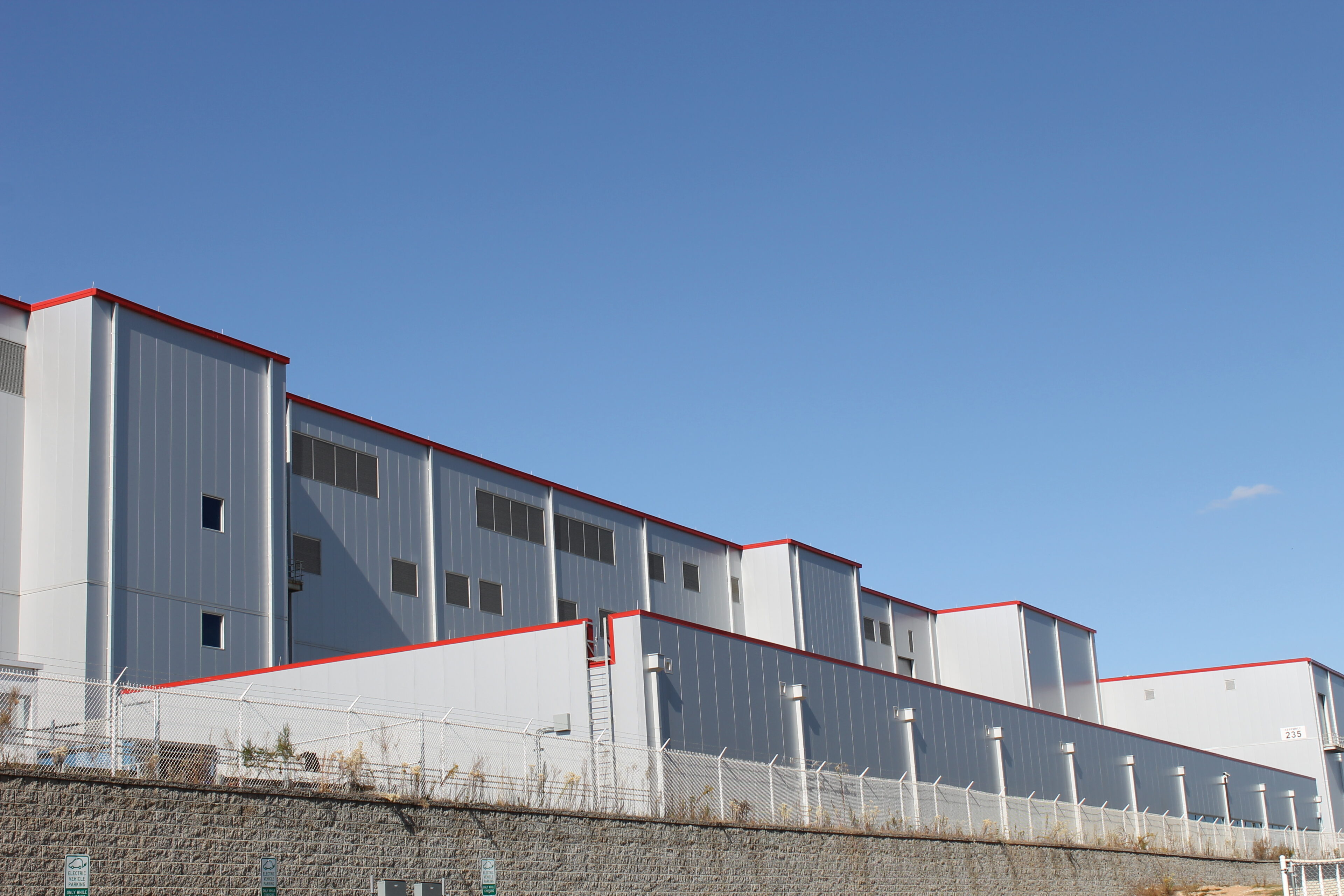
“SK Battery’s checkered past raises serious questions about the more than $300 million in tax breaks it received to build its Commerce-(based) gigafactory,” the lawsuit states. “… While the impact of SK Battery’s misconduct is still being felt, the $31 million settlement represents a significant victory for small businesses like Metro Site. Incredibly, for more than a year, SK Battery’s strategy was to deny all fault and to deny causing the fire altogether.”
Collier contends the “fire events cited by Metro Site (attorneys) occurred over the course of three years with many of the events triggered only by a smoke alarm without any fire.” He says also that “none of the incidents resulted in significant damage or burn injuries to employees.”
Collier again pointed to what he described as “rigorous” safety procedures and training the company implements at its Commerce facility.
“SK Battery America also established in 2021 an on-site emergency response team staffed around the clock by trained firefighters using sophisticated equipment, including our own fire truck,” he said. “Every manufacturing site has the potential for fire events, but few sites employ the rigorous safety measures and 24/7 response system implemented by SK Battery America.”
Banks County files lawsuit against SK
A second lawsuit is still pending between SK Battery and Banks County government, which has retained the McDonald & Cody law firm for legal representation.
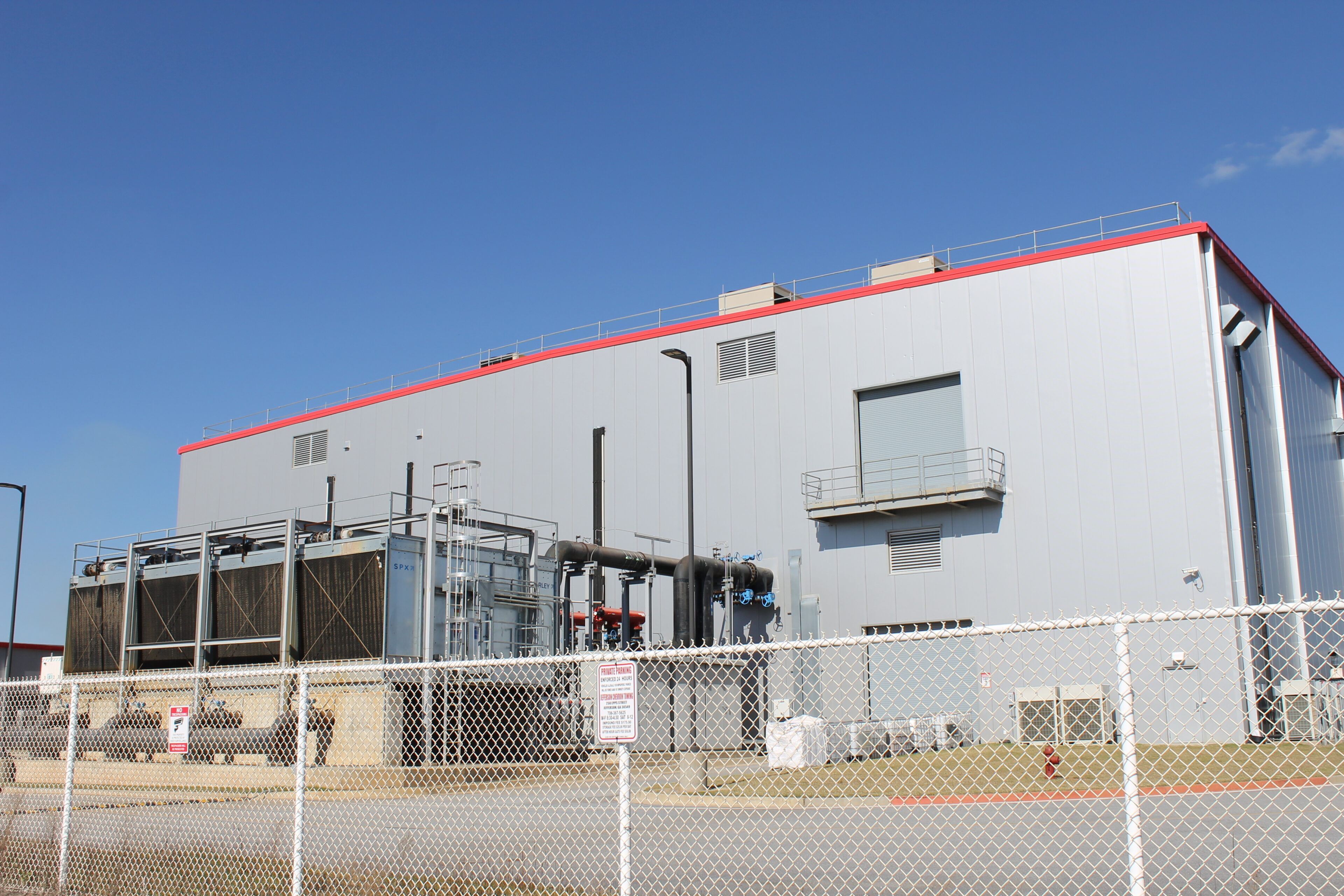
Collier declined to comment on pending litigation.
Hatchett said the case had been transferred to federal court before a motion was filed to move future proceedings to Jackson County Superior Court. During the blaze last year, Hatchett said Banks County had to take “extraordinary measures” to protect government property.
“Banks County had to expend an exorbitant amount of resources to put out the fire,” Hatchett said. “The Metro site was right next to a water treatment facility and a fire station. During the fire, they had to monitor the water that was going into the treatment facility. They had to evacuate the fire station…because of those measures, efforts and resources that were expended, Banks County is entitled to be reimbursed and that’s what the lawsuit is about.”






